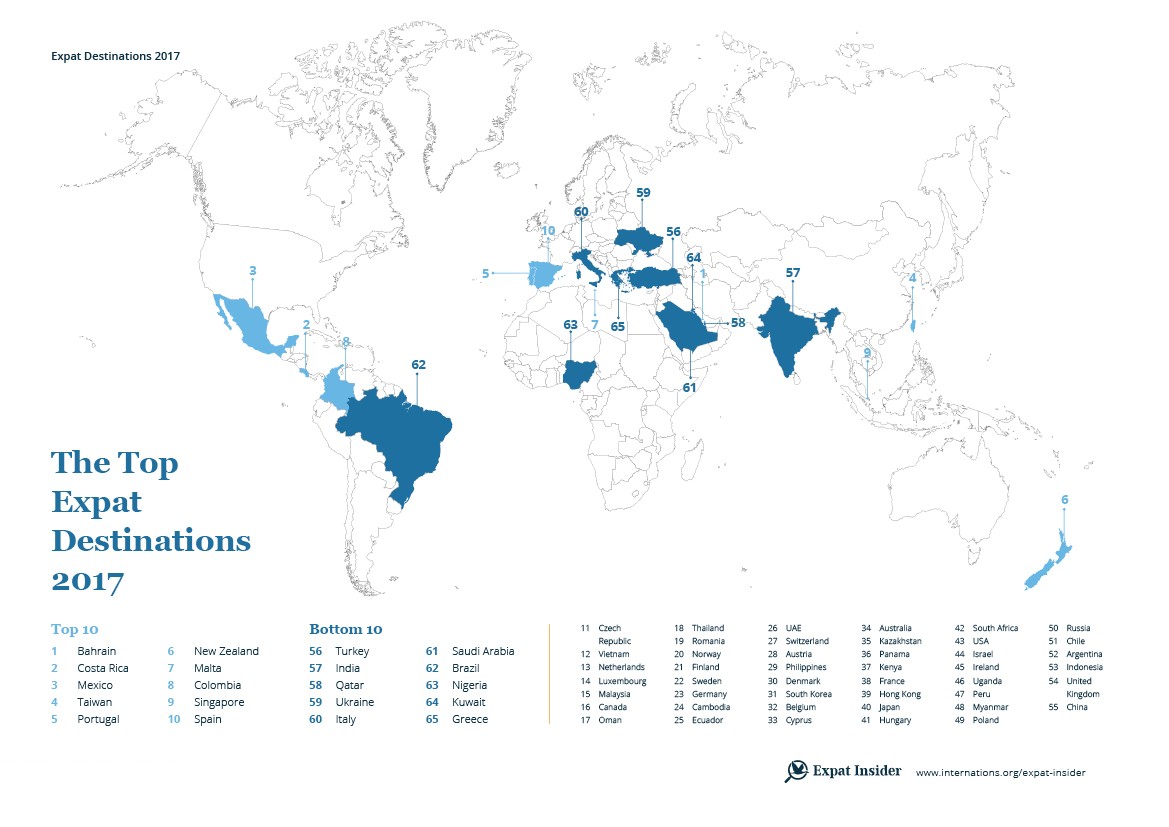
Moving abroad can be an exciting yet daunting experience. To ensure a hassle-free transition, it is essential to have a well-planned strategy in place.
In this article, we will explore the top 10 hacks that will help you navigate the challenges of moving abroad with ease. From packing checklists and visa processes to cultural preparation and housing searches, these practical tips will equip you with the necessary tools for a smooth and stress-free international move.
Get ready for your new adventure with these expert suggestions.
Packing Checklist
To ensure a smooth transition when moving abroad, it is essential to have a comprehensive packing checklist.
This checklist should include all the necessary items for your new life, such as clothing suitable for the climate, toiletries, important documents, and any specific items required for your visa application.
When deciding what to bring, consider the cultural norms and traditions of your new country, as well as the language immersion aspect of your move.
It can be helpful to pack language learning resources, such as books or apps, to aid in your language acquisition journey.

Additionally, don't forget to pack any necessary adapters or converters for your electronics, as well as any sentimental items that will help make your new place feel like home.
Visa Process
When moving abroad, understanding the visa process is crucial. Familiarizing yourself with common visa requirements and following visa application tips can help streamline the process and avoid unnecessary delays or complications.
This article will provide useful information and practical hacks to make your visa application experience as smooth as possible.
Common Visa Requirements
What are the most common visa requirements and processes for moving abroad?
When it comes to obtaining a visa for moving abroad, there are a few common requirements and processes to keep in mind. Here are three key points to consider:
Visa Interview: Many countries require applicants to attend a visa interview as part of the application process. This interview is an opportunity for immigration officials to assess the applicant's eligibility and intentions for moving abroad.
Visa Processing Time: The processing time for a visa can vary depending on the country and type of visa being applied for. It is important to research and plan ahead to ensure that the visa is obtained within the desired timeframe.

Document Requirements: Each country has specific document requirements for visa applications, such as proof of identity, proof of financial stability, and proof of accommodation. It is essential to carefully review and gather all necessary documents to avoid delays or rejections.
Visa Application Tips
The visa application process for moving abroad requires careful attention to detail and thorough preparation.
One of the key steps in this process is the visa interview, where you will have the opportunity to present your case and convince the consular officer of your eligibility to enter the country.
To ensure a successful visa interview, it is important to be well-prepared. Research the visa requirements and regulations of the country you are moving to, gather all necessary documents, and practice answering potential interview questions.
Dress professionally, arrive on time, and be confident in your responses. It is also helpful to bring any supporting documents that can validate your ties to your home country.
Cultural Preparation
When moving abroad, it is important to be culturally prepared in order to have a smooth transition.
Language immersion techniques can help you quickly adapt to the local language and communicate effectively with the locals.

Cultural sensitivity training can help you navigate social norms and customs, ensuring that you avoid any unintentional offense.
Additionally, researching local customs and traditions can help you better understand and respect the cultural differences you may encounter.
Language Immersion Techniques
To ensure a smooth transition when moving abroad, it is essential to employ effective language immersion techniques for cultural preparation. Learning the local language not only facilitates communication but also helps in integrating into the new community. Here are some practical ways to immerse yourself in the language and culture of your new home:
Take language classes: Enroll in language courses to gain a solid foundation in the local language. These classes provide structure and guidance for learning the language effectively.
Join language exchange programs: Engage in language exchange programs where you can practice your new language with native speakers while helping them learn your native language. This interactive approach enhances language skills and fosters cultural understanding.
Immerse yourself in the local culture: Surround yourself with the language by watching local movies, listening to music, and reading books in the new language. Immerse yourself in the local culture to better understand the customs and traditions.
Cultural Sensitivity Training
For an expeditious transition when moving abroad, it is imperative to undergo comprehensive cultural sensitivity training. Cultural awareness and cross-cultural communication are essential skills that can help individuals navigate unfamiliar environments with ease and respect.

Cultural sensitivity training provides individuals with the necessary tools to understand and appreciate different customs, traditions, and social norms, fostering positive relationships and preventing misunderstandings. This training equips individuals with the ability to adapt to new cultural contexts, communicate effectively with people from diverse backgrounds, and navigate potential cultural pitfalls.
Research Local Customs
A thorough understanding of the local customs is crucial for a seamless cultural preparation when moving abroad. To ensure a hassle-free experience, it is important to research and familiarize oneself with the local customs of the destination country. Here are three key aspects to consider:
Local Cuisine: Discovering the local cuisine is an excellent way to immerse yourself in the culture and experience the authentic flavors of your new home. Explore local markets and restaurants to taste the traditional dishes and learn about the preferred dining etiquette.
Transportation Options: Understanding the transportation system in your new location is vital for getting around easily and efficiently. Research the available modes of transportation such as buses, trains, or taxis, and learn about the local customs and norms related to using public transport.
Social Etiquette: Every culture has its own set of social norms and etiquette. Take the time to learn about the appropriate behaviors and gestures, as well as any taboos or customs to avoid. This will help you navigate social situations with ease and respect the local traditions.
Housing Search
Finding suitable housing is essential when moving abroad for a hassle-free experience. One of the key factors to consider is housing affordability, as it is important to find a place that fits within your budget. Researching the local rental market and comparing prices in different neighborhoods will help you make an informed decision.
Additionally, neighborhood safety is another critical aspect to consider. Prioritize areas that have low crime rates and are known for their security measures. Utilize online platforms, such as real estate websites and social media groups, to search for available housing options. Reach out to local expat communities for recommendations and advice.

Consider working with a local real estate agent who can guide you through the process and provide insights into the local housing market. Taking these steps will ensure a smoother housing search and help you find the ideal place to call home in your new country.
International Moving Companies
When moving abroad, it is crucial to consider hiring an international moving company to handle the logistics of transporting your belongings to your new destination. International moving services can greatly simplify the process and ensure that your items arrive safely and on time.
Here are some international moving tips to help you choose the right company for your needs:
- Research and compare different international moving companies to find the best rates and services.
- Check if the company has experience in the specific country you are moving to, as they will be familiar with local regulations and customs.
- Read customer reviews and testimonials to get an idea of the company's reliability and customer satisfaction.
Currency Exchange
To ensure a seamless transition when moving abroad, it is essential to carefully navigate the world of currency exchange. Here are some currency exchange tips to help you make the most of your money.
Firstly, it is important to research the currency exchange rates before making any transactions. This will allow you to find the best rates and avoid unnecessary fees.
Secondly, it is advisable to find reputable currency exchange agencies that offer competitive rates and reliable service. Look for agencies that are regulated and have positive customer reviews.
Additionally, consider using online platforms for currency exchange, as they often offer better rates and convenience.

Lastly, always compare rates and fees from different providers to ensure you are getting the best deal.
Learning Local Language
Acquiring a functional level of proficiency in the local language is crucial for a smooth and successful transition when moving abroad. Here are some practical tips to help you learn the local language effectively:
Take language classes: Enrolling in language classes can provide you with structured learning and help you build a strong foundation in the language.
Language exchange: Participating in language exchange programs or finding language partners can give you the opportunity to practice speaking with native speakers and improve your conversational skills.
Immersion: Immerse yourself in the local culture and language by surrounding yourself with native speakers. This can include watching movies or TV shows in the local language, listening to local music, and engaging in everyday conversations with locals.
Pets Relocation
Pets Relocation can be a complex and challenging process when moving abroad. It is important to plan ahead and ensure that your furry friend's journey is as smooth as possible.
One of the key considerations is pet quarantine. Different countries have different regulations regarding pet quarantine, so it is crucial to research and comply with the specific requirements of your destination country.

Additionally, make sure to gather all the necessary pet travel documents, such as vaccination records, health certificates, and microchip information. These documents are usually required by airlines and customs authorities to ensure the safety and wellbeing of your pet during the relocation process.
Essential Documentation
When relocating abroad with your furry friend, it is crucial to ensure that you have all the essential documentation in order to comply with the regulations and requirements of your destination country.
Here are some key documents you should have:
Pet Passport: This document contains your pet's identification, vaccination records, and microchip details. It is necessary for international travel with pets.
Health Certificate: A health certificate issued by a veterinarian certifies that your pet is healthy and free from infectious diseases. Some countries require this document to grant entry.
Import Permits: Certain countries require import permits for pets. These permits outline specific regulations and requirements for bringing pets into the country.
Navigating the essential documentation process can be challenging, especially if you face a language barrier. It is essential to research and understand the requirements of your destination country. Additionally, ensure that you have access to healthcare for your furry friend, as some countries may have different healthcare access for pets.

Shipping Personal Items
When moving abroad, it is crucial to pack fragile belongings properly to ensure they arrive in one piece.
Additionally, familiarizing yourself with customs regulations and fees can help you avoid any surprises or delays when shipping your personal items.
Taking the time to research these aspects and plan ahead will make the process of shipping your belongings smoother and more efficient.
Packing Fragile Belongings
To ensure the safe transport of delicate items when moving abroad, proper packing techniques are essential. Fragile item protection is crucial to prevent any damage during the journey. Here are some tips to help you pack your fragile belongings securely:
Use sturdy boxes: Opt for strong, double-walled boxes to provide maximum protection.
Bubble wrap and packing paper: Wrap fragile items individually with bubble wrap or packing paper to cushion them against any impact.
Fill empty spaces: Use packing peanuts or crumpled paper to fill empty spaces in the boxes and prevent movement.

Customs Regulations and Fees
Shipping personal items when moving abroad requires a thorough understanding of customs regulations and fees.
Customs regulations vary from country to country, so it is important to research and comply with the specific requirements of your destination. Failure to do so can result in delays, penalties, or even the confiscation of your belongings.
One key consideration is import taxes, which may be levied on certain items. These taxes are typically based on the value of the goods being shipped and can significantly impact your budget. To avoid surprises, it is advisable to consult with a customs broker or seek guidance from the destination country's embassy or consulate.
They can provide valuable information regarding the necessary documentation, restrictions, and fees associated with shipping personal items. Being well-informed and prepared will help ensure a smooth and hassle-free experience when shipping your belongings abroad.
Frequently Asked Questions
What Should I Do With My Current Bank Accounts and Credit Cards When Moving Abroad?
When moving abroad, it is crucial to manage your taxes and financial obligations. Regarding bank accounts and credit cards, consider setting up new accounts in your new country to ensure seamless financial transactions and avoid complications.
How Can I Find a Reliable Doctor or Healthcare Provider in My New Country?
Finding a reliable doctor or healthcare provider in a new country can be challenging. To overcome this hurdle, research the local healthcare system, ask for recommendations, and consider joining expat forums or communities for guidance and support.
Are There Any Restrictions or Regulations on Bringing Medication or Prescription Drugs With Me When Moving Abroad?
When moving abroad, it is important to be aware of the regulations and restrictions regarding bringing medication. Research the specific requirements of your destination country and pack prescription drugs appropriately for international travel.

What Are Some Tips for Adapting to the Local Cuisine and Finding Familiar Foods in My New Country?
When adapting to the local cuisine in a new country, embrace cultural food experiences and try new flavors. To find familiar foods, explore international grocery stores or utilize online food delivery services for convenience and variety.
How Can I Make New Friends and Build a Social Network in My New Country?
Making connections and expanding your social circle in a new country can be facilitated by joining local clubs or organizations, attending community events, and utilizing social media platforms to connect with like-minded individuals.
 Liveaboard LifestyleTravel DestinationsExPat Places to LiveRV LifeDigital Nomad TravelPrivacy PolicyTerms And Conditions
Liveaboard LifestyleTravel DestinationsExPat Places to LiveRV LifeDigital Nomad TravelPrivacy PolicyTerms And Conditions
